On July 18, 2025, another meaningful session within the art therapy program took place at Poltava Polytechnic. This initiative is designed to support those affected by the war in Ukraine. This time, the university welcomed mothers of children with Down syndrome, who came to experience an essential journey of emotional release, acceptance, and renewal.
The event was organized by university psychologist Olena Kryvenko and associate professors of the Department of Psychology and Pedagogy, Maryna Teslenko and Viktoriia Shevchuk, within the framework of the large-scale international Erasmus+ KA220-ADU project “TRUST” – Trauma of refugees in Europe: An approach through art therapy as a solidarity program for Ukraine war victims (Grant No. 2024-BE01-KA220-ADU-000257527).
The project title is decoded as follows:
TRUST
T – Trauma
R – Refugees
U – Ukraine
S – Solidarity
T – Therapy
The project is co-funded by the EU and led by the Centre Neuro Psychiatrique St-Martin from Belgium, in partnership with the National University “Yuri Kondratyuk Poltava Polytechnic” (Ukraine), Greek Carers Network EPIONI (Greece), Fondazione Don Luigi Di Liegro (Italy), Lekama Foundation (Luxembourg), EuroPlural Project (Portugal).
Mothers raising children with disabilities live under constant emotional strain. They are the support system, lifeline, and entire world for their children. When this responsibility is coupled with wartime realities – continuous anxiety, uncertainty, and the loss of familiar bearings – it can result in profound exhaustion, guilt, and loneliness.
This is why the session began with a warm, psychoeducational conversation about the importance of acknowledging all emotions – joy, fear, fatigue, and even anger. Participants were encouraged to allow themselves to feel and recognise every emotion, understanding each as a valid signal that deserves attention rather than suppression.
A meditative visualisation practice titled “We Don’t Always Need to Know About…” helped the mothers let go of the need for constant control, take a step back, and trust their inner resources – their body, breath, and the present moment.
Following this, participants engaged in the core practice of the session: “Body Emotion Map.” In art therapy, the body is seen as a map on which emotions leave traces in the form of tension, pain, or warmth. Participants were given outlines of human silhouettes and invited to work with them as maps of their feelings, using colours, lines, and symbols to express their inner experiences. Through images, touch, and colour, the women explored new ways of understanding themselves. This practice helped them recognise where emotions reside in the body and how to interact with them mindfully and healthily.
By applying colours and lines to the silhouettes, participants learned to “read” this emotional map. This process allowed them not only to think about their emotions but also to see where they reside in the body. Such visualisation is the first step toward healthily experiencing these emotions, rather than suppressing or accumulating them.
The session concluded with a mindfulness practice designed to reduce the impact of negative automatic thoughts. It offered a rare opportunity for the participants to pause and be with themselves. “It was a moment when I could just be with myself – without expectations, without roles, without pressure,” – shared one of the participants.
At the same time, while the mothers immersed themselves in self-exploration, their children participated in a special creative program of their own. The little ones created a craft called “My Resource Tree”, shaping pieces of plasticine with their fingers on paper, then adding soft pieces of tissue to form a textured tree canopy. Nearby, they also had the opportunity to create a 3D butterfly – an image often used in psychotherapy and art therapy as a symbol of transformation, recovery from trauma, and a return to “life in colour” after emotional burnout. For children, the butterfly may represent inner strength that allows each of them to “spread their wings” at their own pace.
This was not just play – it was a meaningful sensory-motor experience that combined creativity with the development of fine motor skills and tactile sensitivity. The use of touch, colour, and texture helped the children calm down, focus, and learn to express themselves safely.
Such practices have a therapeutic effect – they reduce anxiety, stabilise emotional states, and promote trust between the child and the adult. At the same time, they offer a shared experience for mother and child, strengthening their emotional connection in a warm and accepting atmosphere.
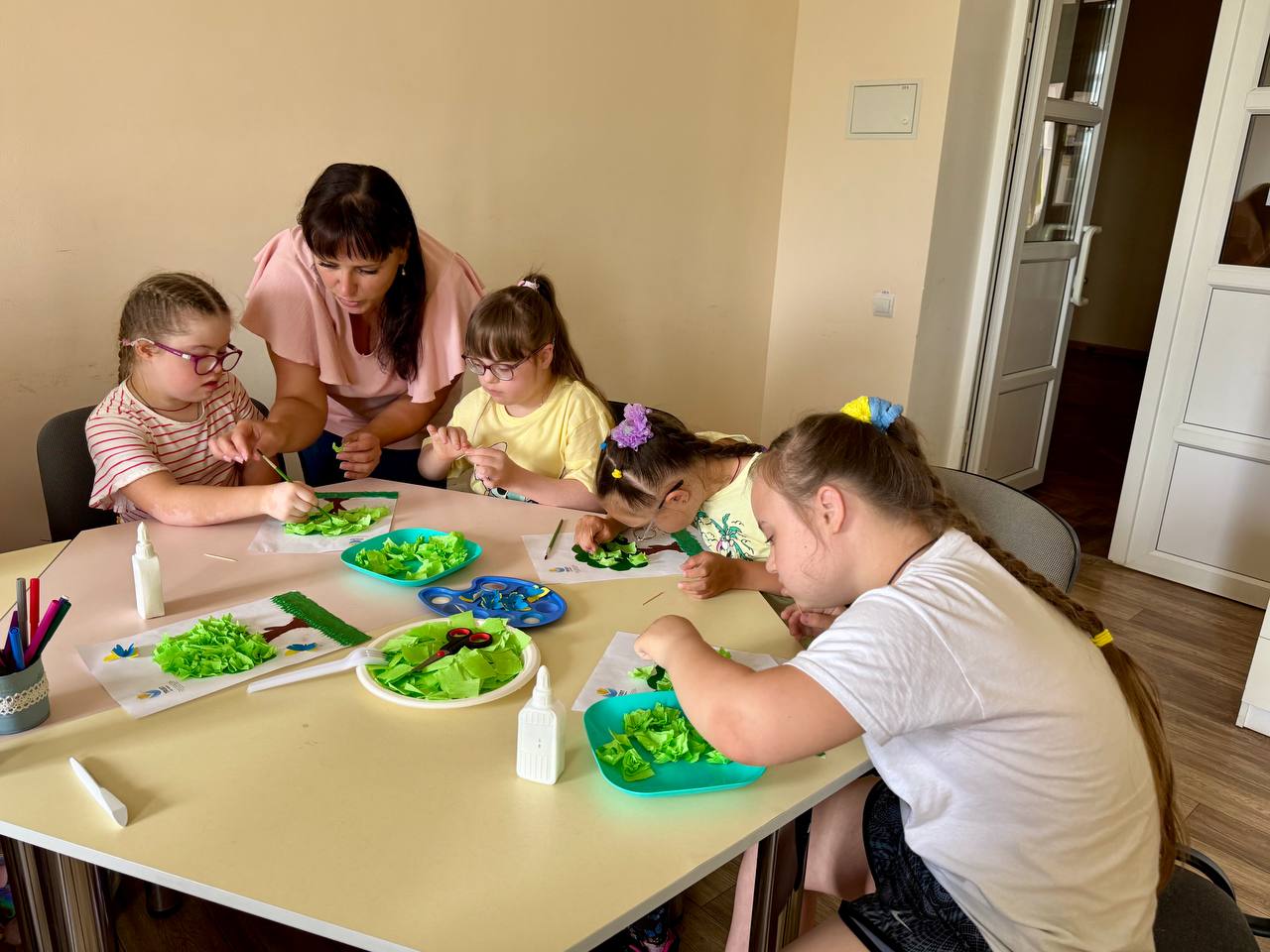
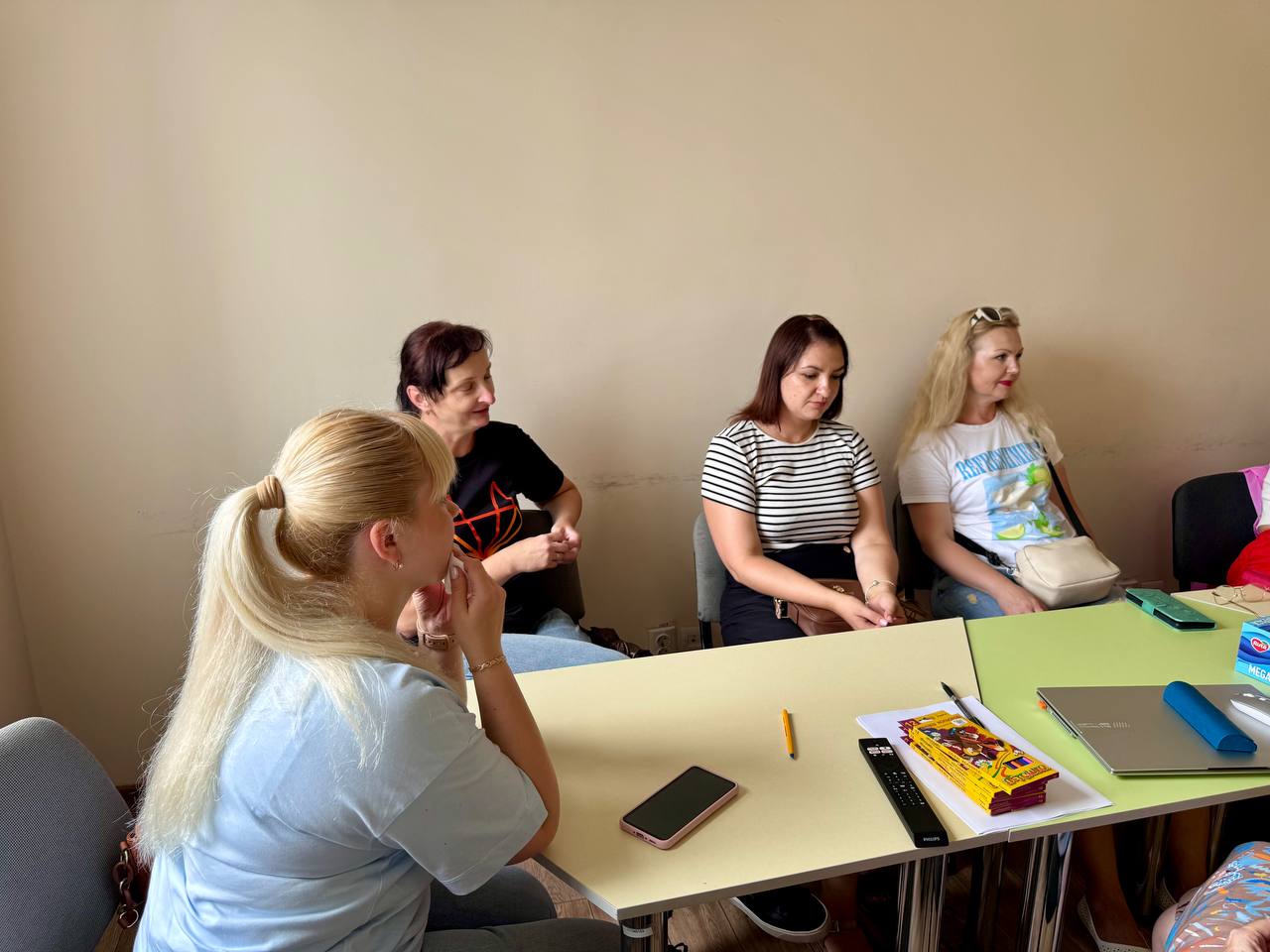
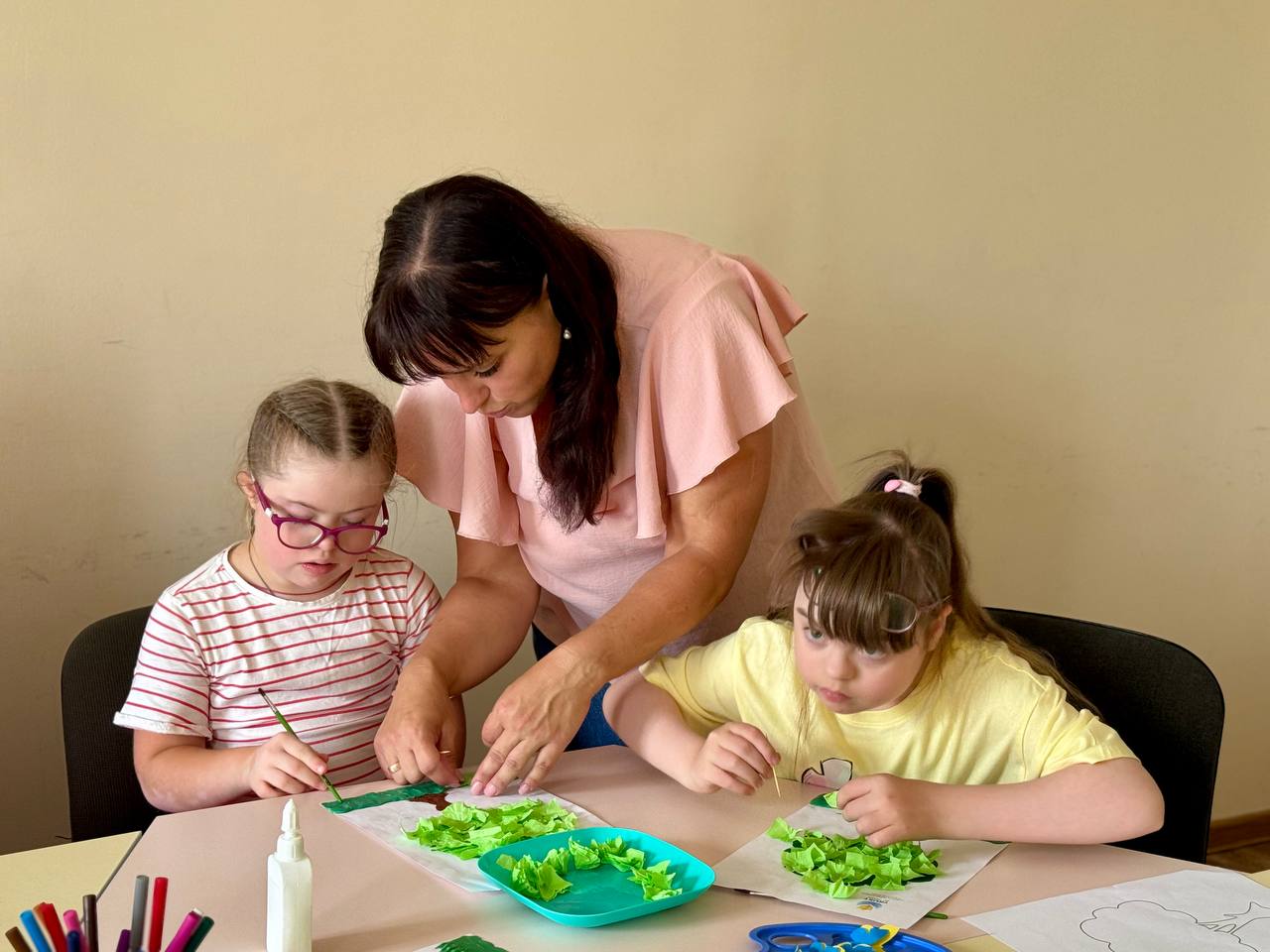
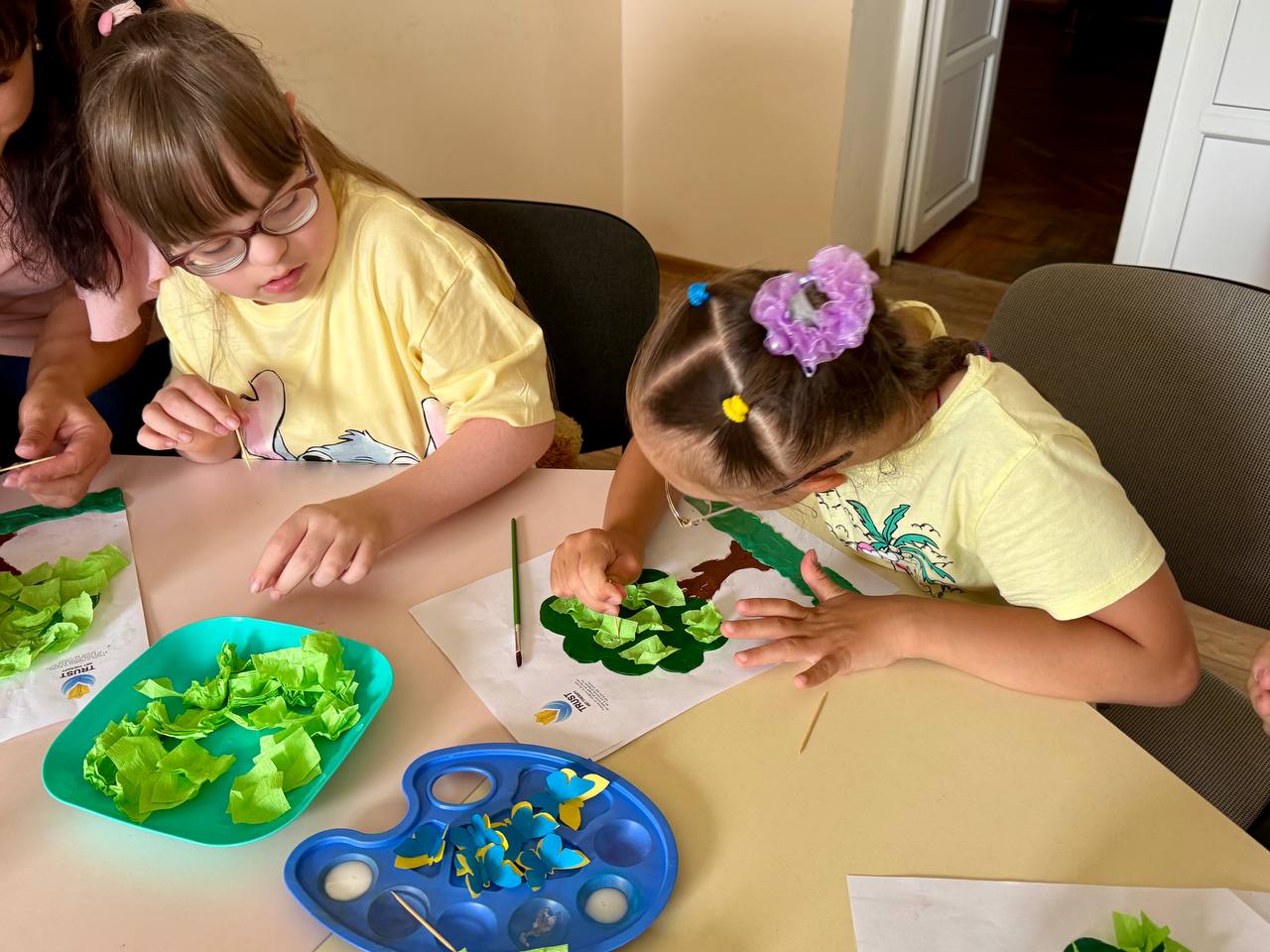
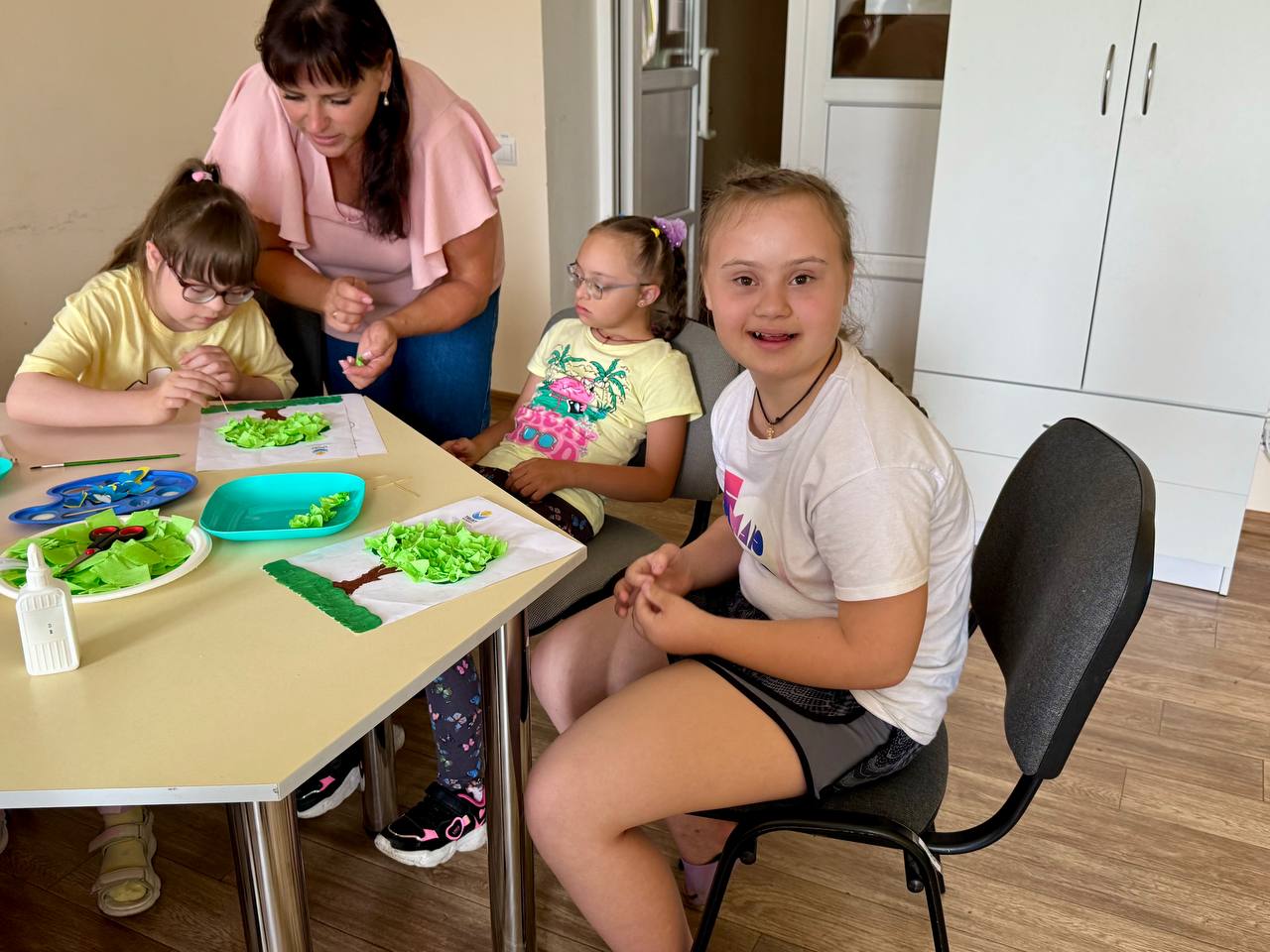
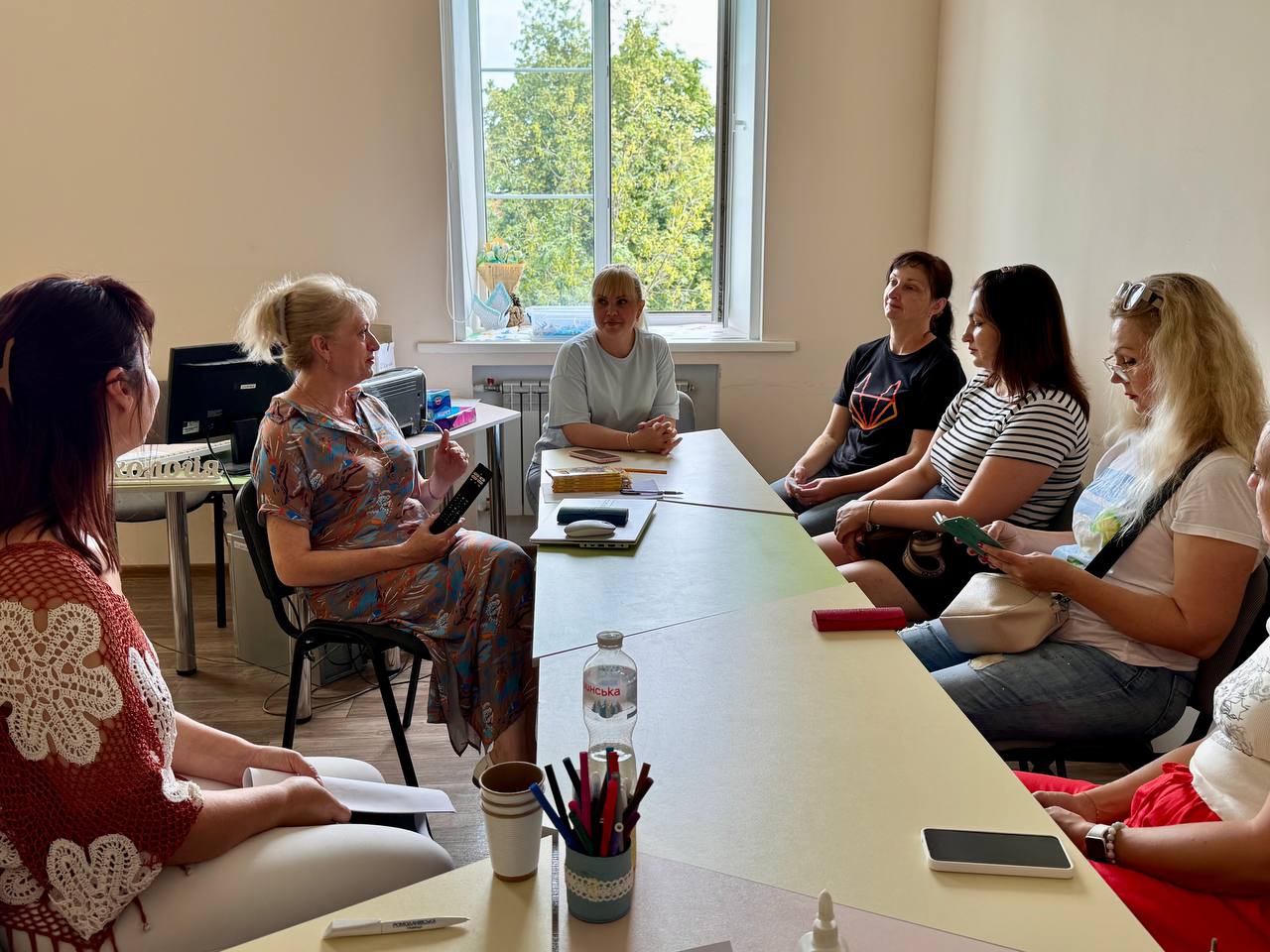
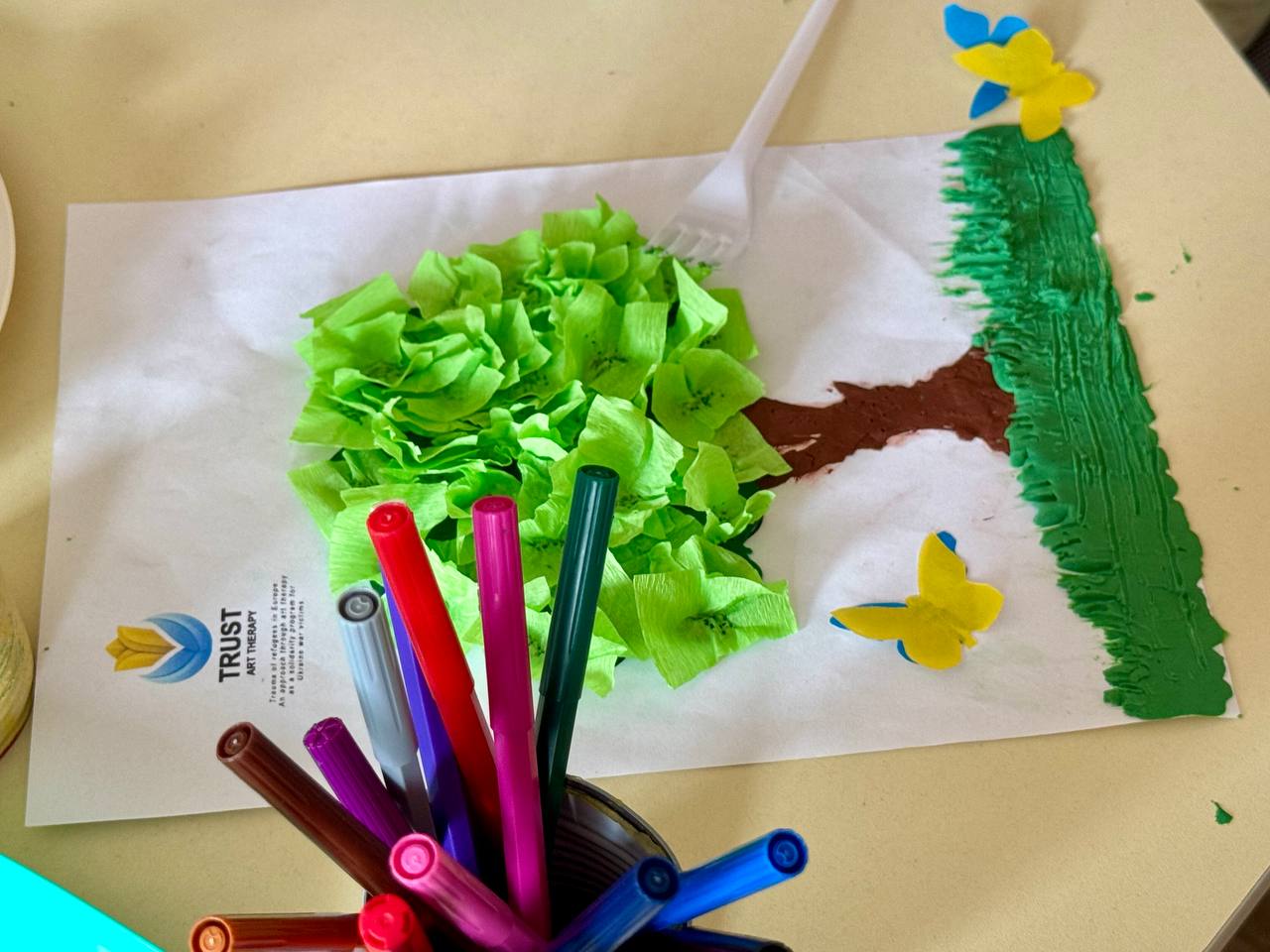
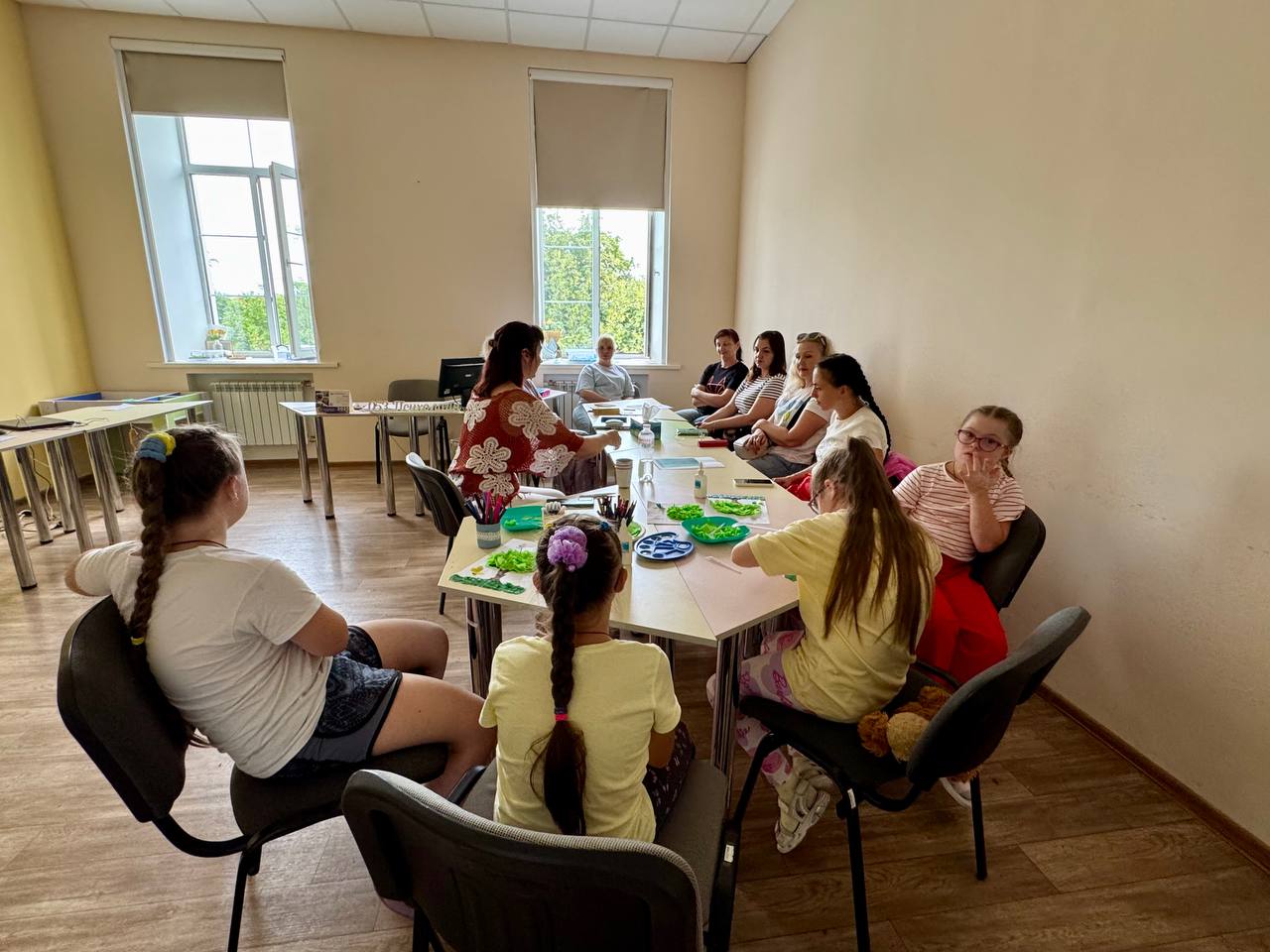
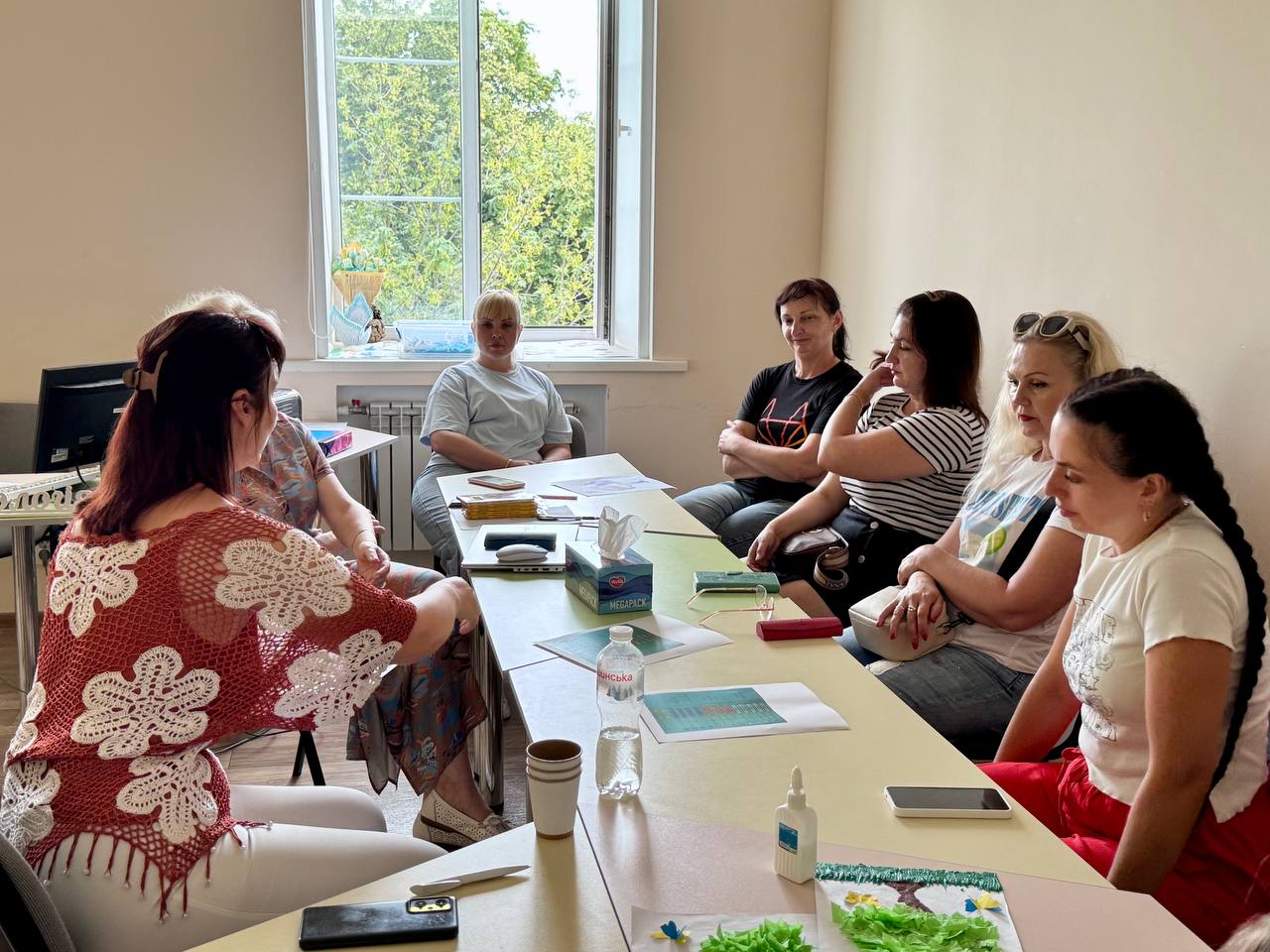
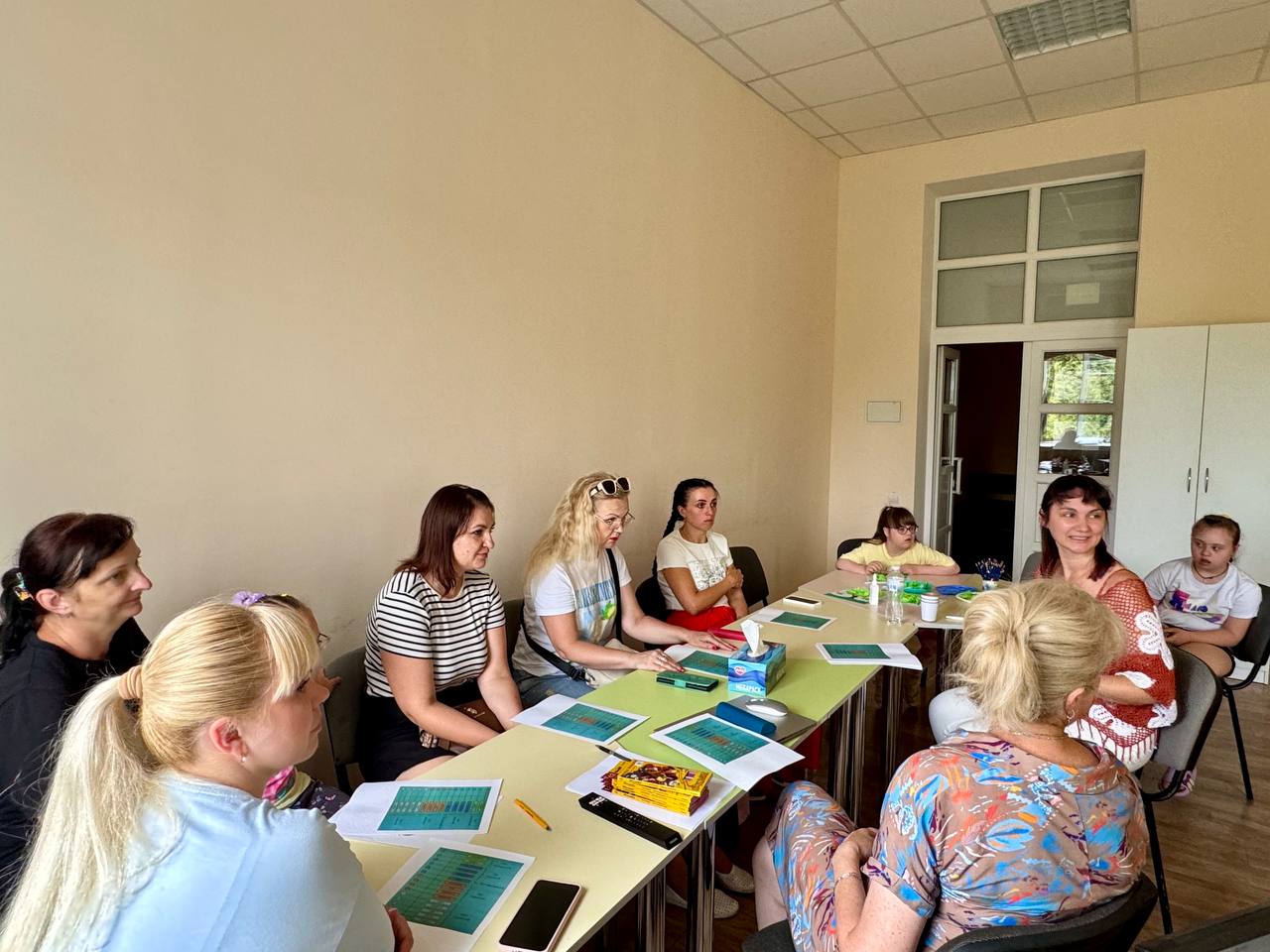
These sessions, where everyone receives attention and support, have become possible thanks to the Erasmus+ KA220-ADU project, “TRUST”: Trauma of Refugees in Europe - An Approach through Art Therapy as a Solidarity Program for Ukraine War Victims. Ahead lie more sessions, new techniques, and – most importantly – ongoing, living support that Ukrainians so deeply need today.
Because art is not only about form and colour, it is about touching the self. It is about hope that grows even amid ruins. It is about strength that begins with acceptance.
Media Centre of
National University “Yuri Kondratyuk Poltava Polytechnic”



